Curriculum Overview
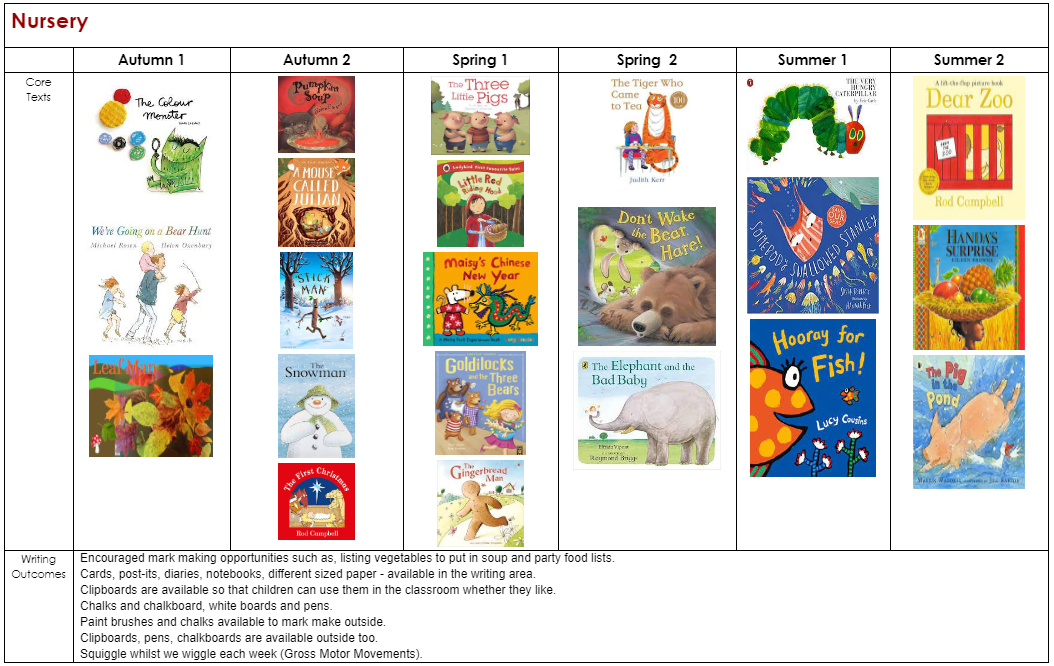
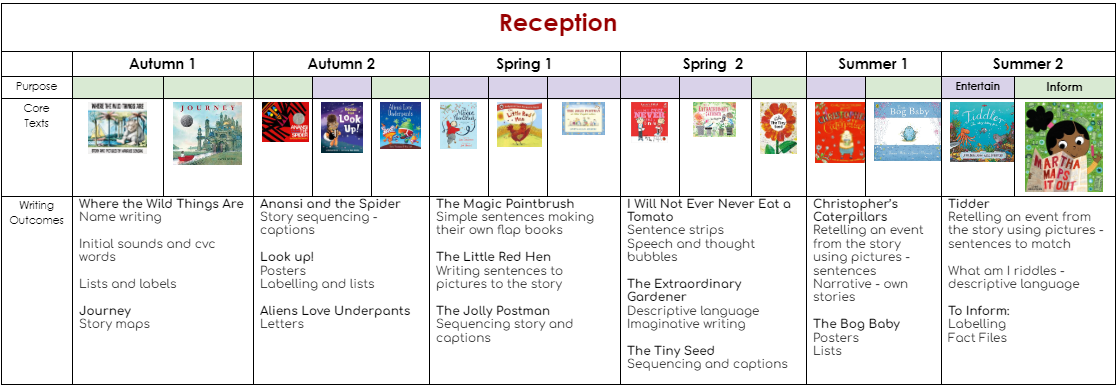

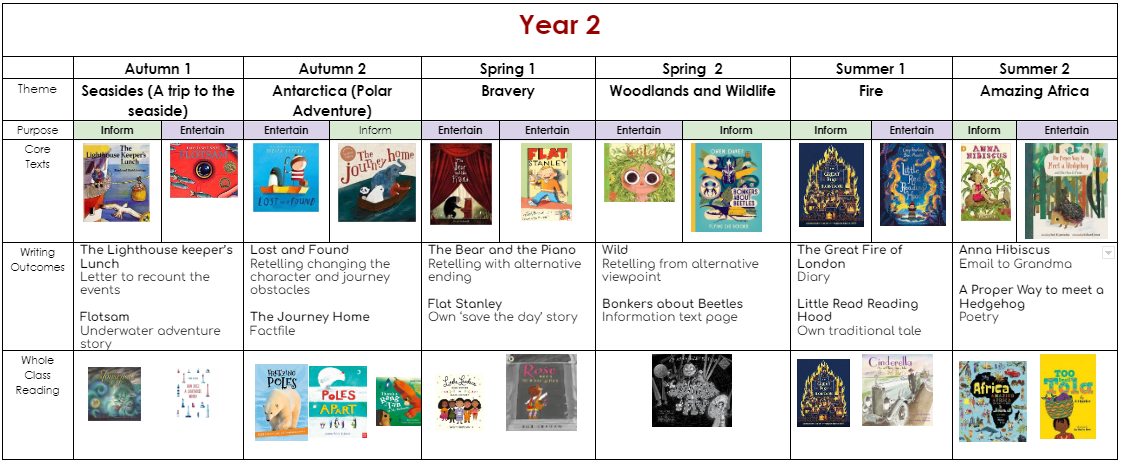
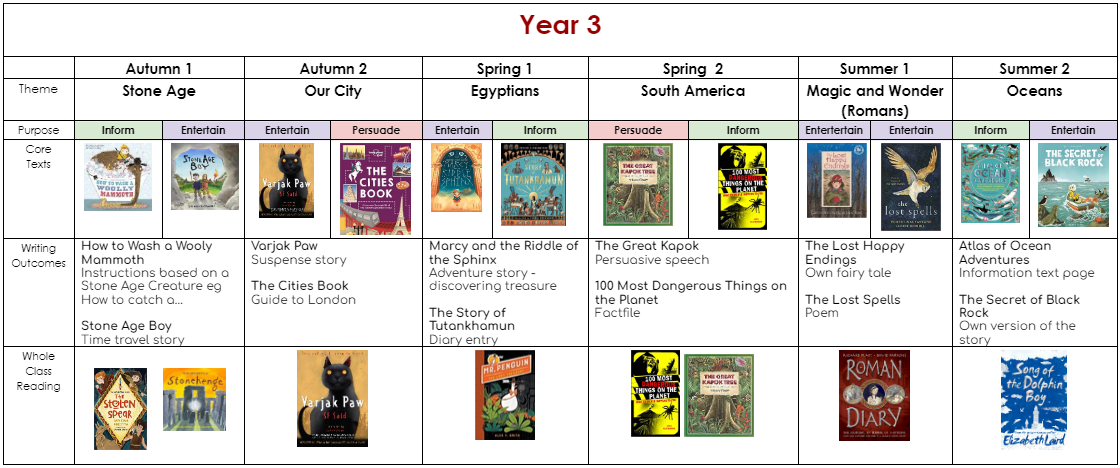
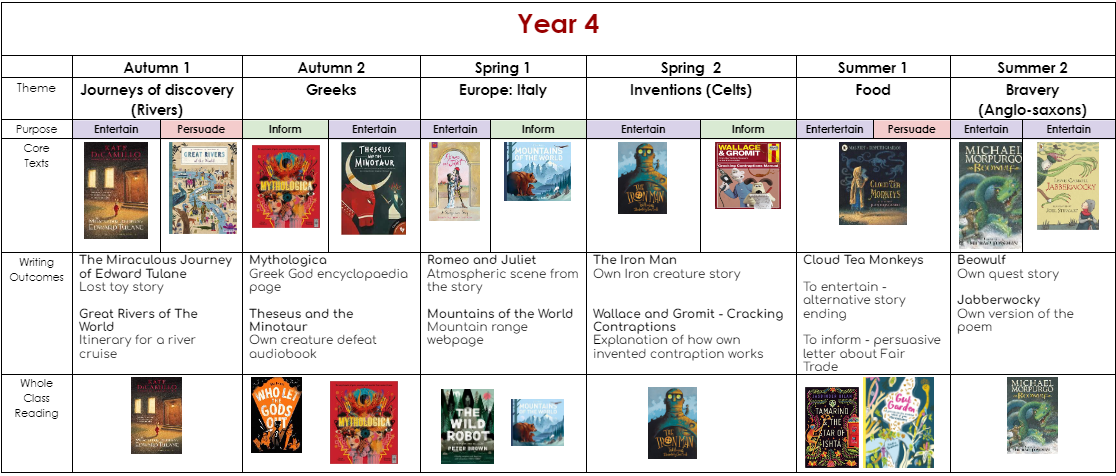
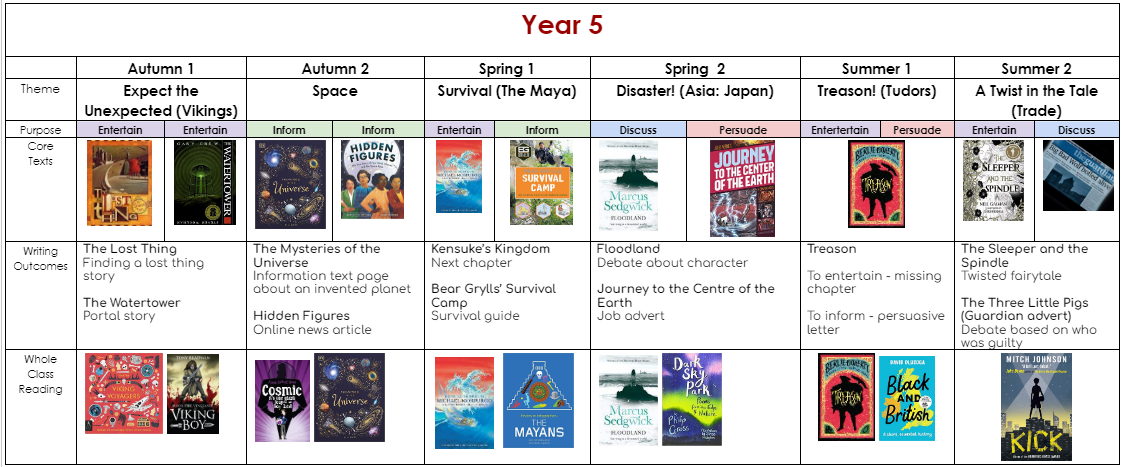
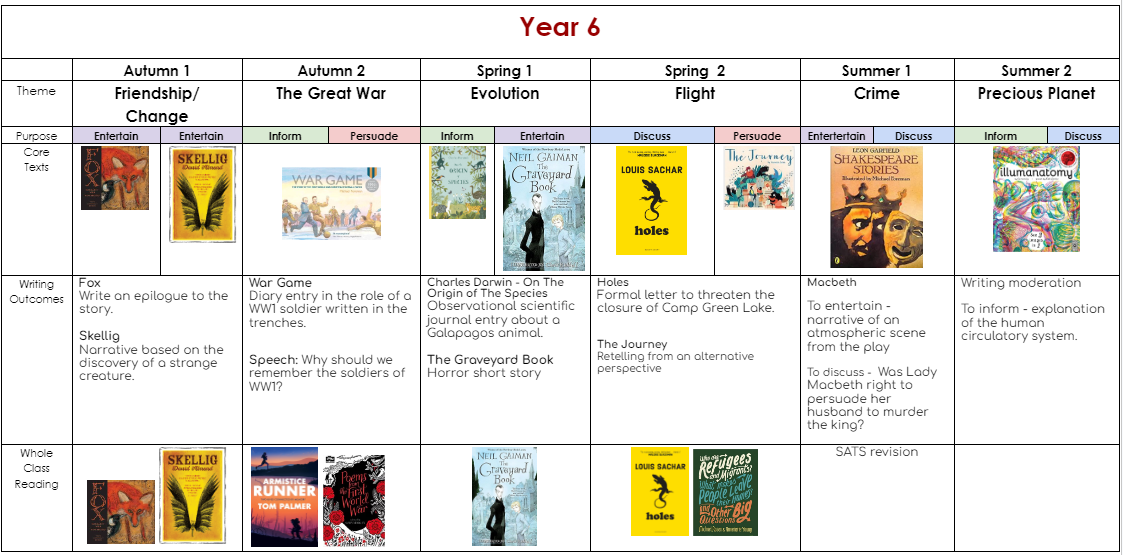
Fern Hill Whole School English Curriculum Overview
Fern Hill Spoken Language Skills Progression
Nelson Handwriting Skills Progression
Rationale
Love of learning
At Fern Hill, we believe that a strong foundation in reading and writing unpins our children’s future success. We aim for all pupils to leave our school as fully literate individuals, enjoying reading for pleasure and purpose, and able to communicate clearly and effectively through speaking and writing. Our English curriculum puts high-quality children’s literature at the heart of all learning; we fundamentally believe that this serves as a vital inspirational and creative starting point to develop children’s imaginations and literacy skills.
Knowledge
"In every writer, there is a reader. Give them reading. Let them lift the words off the printed page to enrich their own written work."
~ Louise Johns-Shepherd, Chief Executive, CLPE
All of our writing sequences are based around a high-quality text; across the school we have built a core text map for each year group based on a collection of books from a wide and diverse range of authors, illustrators and forms ensuring a balance of picture books and longer texts.
We believe that a well-chosen text provides rich language models and structures from which children can learn how writing works and the effect it can have on a reader. In order to develop confident young writers, our philosophy is that teachers should read aloud and share high quality texts across a range of genres, reflecting a range of writing styles. Chosen texts are rich in vocabulary, and enable children to comprehend beyond their reading fluency level, providing strong models for their own writing - this applies to fiction and non-fiction texts. A rich reading environment that demonstrates the written word in all its forms and shares how writing can be used for thinking, for communication and as a means of expression is also central to our approach. With a rich diet of quality texts and enriching experiences children will be able to find their own reasons to write and develop a style that fits the purpose, audience and form intended.
We believe that this is vitally important to children’s writing development - links between children’s reading and their writing have long been acknowledged. Research shows that through picking the right literature and helping children to understand the skill of an effective and powerful professional author, teachers can support and enhance children’s developing skills as a writer in a meaningful and effective way.
Skills
At Fern Hill we have developed our own teaching framework to enable our children to develop their writing skills in a rich and progressive way. It is based on three key stages of the writing process: immersion, modelled writing, then independent application and editing. From Years 2 – 6 each unit of writing is designed to last between 2–4 weeks to ensure that children can study their text in depth and produce a range of incidental writing alongside an extended piece.
Immersion
Supporting children to tune into the creativity needed for writing through a range of experiences is key to developing imagination and ideas for writing in all forms. At Fern Hill, children are encouraged to explore ideas prior to composition through art, drama and role-play, with music, movement and small world play in EYFS, providing opportunities to write independently to develop these ideas. When drawing on a text to stimulate writing, teachers will pause at pivotal moments as the story unfolds to allow children to express and discuss their initial responses. This type of book talk enables children to deepen their understanding of characters and events and supports them to articulate ideas effectively in their own writing. Before writing poetry, children should be allowed to hear it read aloud, hear and see it performed, and perform it themselves. Time and space for drama should be given, enabling children to explore real and fictional situations through talk or role-play, while supporting them to see events from a different viewpoint and write in an authentic voice. At this point in the sequence, key grammar objectives should also be taught alongside these activities, always rooted in the context of the text and writing outcomes.
Modelled writing
We strongly believe that as teachers, it is important that we are able to model writing ‘live’, sharing the frustrations and successes involved. We plan opportunities for all pupils to engage in cooperative modelled writing that includes the teacher as writer and allows children to be supported to develop their ideas, skills and writing style within the security of a large group and maintain momentum for writing. We expect teachers to model writing everywhere; linked to all areas of learning and throughout provision, showing children and parents it is inherent in daily activity. Teachers should demonstrate the act of writing but, crucially, write alongside children, articulating the thought process they are going through and strategies they draw on to articulate ideas and ways to overcome difficulties faced. Children benefit enormously from a teacher that writes, a writer that teaches. Teachers should also demonstrate to children how to craft texts with the reader in mind and how to reflect critically on their own writing. They will, in turn, see how to manipulate and control writing to achieve intent as a writer for purpose and effect on the reader.
Independent application and editing
Providing structured writing opportunities allows children to understand how the writing process works, but it is equally important to allow children to use and apply their learning by giving them time and space to write freely for their own purpose and pleasure.
In the Early Years, children engage in writing or mark making activities for their own satisfaction, generally without an intended audience. As writing develops, children may write purely for themselves, before becoming more confident to write for others. Learning to write is a complex process, and it is every child’s entitlement. Taking possession of the written word can open up a world in which children can cultivate identity, an understanding of the world and their place in it in relation to others. To engage children in writing, they have to want to write, see the purpose in doing so and the opportunities it gives for them to have a voice.
We passionately believe that children should be given purposeful opportunities and reasons to write independently in order to apply the skills they have learnt in the teaching sequences, as well as developing authentic personal voice, style, stamina and range as a writer. Our aim is for all children to enjoy writing expressively, imaginatively and informatively for purpose – they will become authors!
Handwriting
We use the Nelson Handwriting scheme from Year 1 to Year 6, following on from Little Wandle letter formation in EYFS. Children are taught basic letter formation in EYFS through to Year 1, where joins are introduced when children are ready. From Year 2 upwards joined handwriting is taught and practised throughout the week.



 Inspiration
Inspiration 